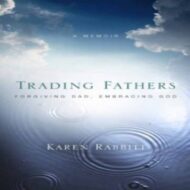“Forgive? I’ll never forgive.” Many years ago, responding to a crisis line call at 2:00 A.M., I had listened to a woman for half an hour as she raged against her brother’s murderer. After listening with compassion, I had ventured the possibility of forgiving the man who’d hurt her family. The vehemence of her response echoed in my ear. I’m guessing she called to vent her rage, not to discuss solutions. Her solution was already worked out. She knew who had killed her brother, she knew where he had fled to, and she was leaving in the morning to take a life for a life.
The Oxford English Dictionary, quoted in Wikipedia, defines forgiveness as ‘to grant free pardon and to give up all claim on account of an offense or debt’. Granted, suggesting this woman give up her claim against this murderer was suggesting a lot. The killer owed this family a great debt. Pardon was too good for him. There was no excuse for what he did. I don’t recall the details. Perhaps he had pulled a gun impulsively. Perhaps it had been planned in advance. Perhaps the man felt guilty, perhaps not. I don’t know any of that.

What I do know is that forgiveness is the only way out of the rage, bitterness, and anger that was keeping that caller up all night. Killing the killer would only perpetuate the cycle. Would the killer’s family come after the new killer? How long before there are ten dead? Twenty? It’s attributed to both Gandhi and Martin Luther King: “An eye for an eye leaves everyone blind.”
Yes, to forgive requires great fortitude. But what’s the alternative?
Jesus, you who modeled and called for forgiveness, show us the way.
